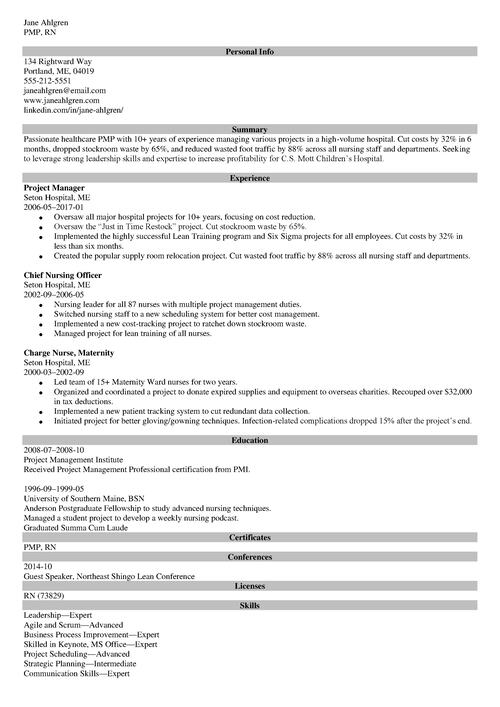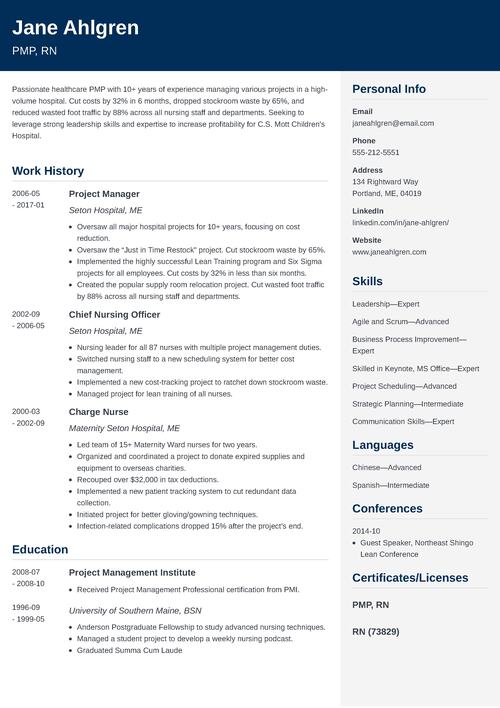99+ Key Skills to Include on Your CV
Create your CV nowWhat skills to put on your CV? After all, they're one of the most essential things recruiters look for in your job application. Everything else on your CV matters only because it helped you develop your unique skill set.
We'll help you identify the best key skills for your CV. Let's begin!
This guide will help to show you:
- Key skills for your CV that will have your job application outperforming CVs from even the most experienced candidates.
- Tips and advice on how to list key skills on CVs to get more interviews.
- How to create a CV skills section and avoid common pitfalls that could cost you your dream job.
Want to save time and have your CV ready in 5 minutes? Try our CV builder. It’s fast and easy to use. Plus, you’ll get ready-made content to add with one click. See 20+ CV templates and create your CV here.
Sample CV made with our builder—See more templates and create your CV here.
Get even more CV writing advice here:
- 20+ Job Winning CV Tips and Advice
- What Should a Good CV Look Like?
- What Personal Details Should Be on a CV?
- Should a CV Be One Page & How to Make it Fit
- Resume vs CV: What’s the Difference?
- Top 10 In-Demand IT Skills for Your Career & CV
- References on a CV: Should You Include Them
- How to Write a CV for Work Experience Opportunities
- CV Design: The Best Templates to Inspire You
- CV Examples for All Jobs
What are the key skills for my cv?
Key skills for a CV are the work-related skills that you need to have in order to do your given job. For example, a good working knowledge of Microsoft Word is a key skill if you're a writer..
Sought-after key skills are often found in the job description; that’s the first place you should look for inspiration as to what to put in your CV skills section. After all, the question isn’t whether the skill is important to you, but whether it is to employers.
A study conducted by the Learning and Work Institute projected that by 2030, there could be 12.7 million people with intermediate skills chasing 9.5 million jobs. This prognosis, combined with only about 8 seconds of the recruiter’s attention per candidate, means that how you list your skills on your CV is even more crucial.
What are the types of key skills for CVs?
The most common division of skills for a CV is hard skills and soft skills.
- Hard skills are technical skills that anyone can learn (e.g. Microsoft Word, HTML, Spanish).
- Soft skills have more to do with your personality and experience (leadership skills, time management, critical thinking).
They’re equally crucial in convincing the employer you’re the best candidate for the job.
List of the top 10 key hard skills for CVs
- Data analysis
- Foreign language
- Analytical thinking
- Project Management
- Social Media Marketing
- Team Management
- Computing
- Software Engineering
- Data Presentation
- Economics
List of the top 10 key soft skills for CVs
- Flexibility
- Time Management
- Collaboration/Teamwork
- Communication skills
- Customer Service
- Conflict Resolution
- Active Listening
- Interpersonal Skills
- Detail Oriented
- Problem Solving
Now let’s look more closely at the three further categories of key CV skills: transferable skills, job-related skills, and adaptive skills.
- Transferable skills can easily be carried over from one job to another. Some examples are Microsoft Outlook, the ability to work under stress, and Italian.
- Job-related skills are necessary to perform a given job and are rarely useful outside that given job or sector. Some examples are nursing, welding, and Workday.
- Adaptive skills are skills you use to adapt or change to situations and surroundings that you experience throughout life and in the workplace. Some examples are creativity, teamwork, and persuasion.
Remember that these categories are fluid, and you can sometimes find that one skill can be listed under more than one category. For example, speaking Spanish is a transferable skill, but if you’re responsible for customer service across Spain, then the Spanish language is also a job-related skill.
Use these categories more as a guide to help you better understand what employers are looking for and where to place certain skills on your CV.
Once you've nailed your CV skills, how about a skills-based CV? Will it work for you? Read more: Skills-Based CV Format [Complete Guide]
How to put skills on a CV?
Wondering how to list skills on your CV? Follow these simple steps:
1. Analyse the job ad
You can’t simply copy and paste all the skills mentioned in the job ad onto your CV. Let’s be honest, no one will believe you. You also can’t simply list random skills you think sound great. That won’t grab anyone’s attention.
Take a step back and think about two things:
- What technical skills is the employer looking for? Highlight them.
- What are the soft skills the employer needs? Highlight them too.
2. Write a separate CV skills section
Now, taking the highlighted job skills from the ad, you can tailor the skills on your CV to match the requirements. Hard skills are usually best placed in the skills section of your CV as a list; it draws a lot of attention that way.
Example of key skills in the skill section of your CV
| RIGHT |
|---|
|
Pro Tip: Many tools tend to be similar. They need Outlook, but you’re a master of Lotus Notes? Add it. They need a whiz at Photoshop, but you know every corner of Gimp? Include it. You don’t have Microsoft Office, but you work in OpenOffice or Google Suite? Mention it. Chances are that differences between the tool versions aren’t enough to disqualify you, and it demonstrates you can learn a new tool faster than someone who’s completely green.
3. Highlight your key skills in your work experience section
Ensure that the bullet points in your work experience section also mention some of your key skills. You can use this opportunity to expand some more on the skills you’ve added to your CV’s skills section.
Example of key skills in the experience section of your CV
| RIGHT |
|---|
| Planned, budgeted and developed online marketing campaigns that led to a 15% rise in conversion and a 35% rise in sales of OTechno’s SEO tool. Collaborated with the sales team to update company-wide branding, which resulted in a 20% rise in visitors to the landing page. |
3. Add some skills to your CV profile
Another great place to mention your skills is your CV profile. Given this is one of the first sections employers see, it’s prime real estate for your core skills.
Example of key skills in the CV profile
| RIGHT |
|---|
| Knowledgeable marketing executive with 5+ years’ experience in copywriting and digital marketing in the service marketing sector. Seeking to leverage expertise to raise sales and brand awareness for InkDigital. |
Pro Tip: Take a look at any courses, certifications, or extra accomplishments that you may have and if they’re relevant to the given role. If they are, definitely add them in for a bit of extra zing.
How to list skills on a CV with no experience?
But what if you’re writing a CV with no work experience or just a little professional experience? Don’t worry, you still have relatable skills to put on your CV.
Here’s an entry-level example of the necessary skills for a junior office assistant:
- Good Microsoft office skills including Excel
- Must be numerate
- Strong attention to detail
- Good telephone manner
- Ability to work with staff at all levels
- Flexible approach
- Keen to progress
These are all skills that you could have acquired from general life experience, part-time work, volunteering, or freelancing. Follow the same format as mentioned previously, and you should be able to create an entry-level winner.
| RIGHT |
|---|
Working knowledge of Microsoft Office, good knowledge of Excel (pivot tables, V look-ups). Volunteered twice a week on the Silver Line to help combat loneliness among senior citizens. Coached local youth basketball team every other weekend and helped them reach the quarterfinals in their category. |
Pro Tip: If the employer mentions a “package” skill like Microsoft Office, but then mentions one particular program separately, you can be sure they’ll be putting their emphasis on that one program. Make sure you do too.
Skills on a CV: example
Here’s an example of a senior sales CV. Notice the highlighted key skills:
Marion Brunner
Senior Sales Associate
01632 960986
Marion.f.brunner@me.com
linkedin.com/in/marionfbrunner77
Summary
Motivated and highly professional Senior Sales Associate with 10+ years of experience in sales and effective sales management. Maintained 93% positive customer reviews and reduced retail redtape by 17% overall. Seeking to leverage proven skills in sales and customer loyalty to boost L’Occitane as Deputy Store Manager.
Experience
Senior Sales Associate
Handbag Clinic, London
2015–present
- Voted Salesperson of the Year in 2017 and 2018.
- Continuously exceeded monthly sales targets by over 12%.
- Achieved a 42% increase in sales over the past year by building customer loyalty through fostering stronger relationships.
- Handled customer-service including POS, sales, and inventory management.
Key achievement: Developed a new system of internal trainings and knowledge-sharing, helping the team resolve 96% of customer complaints without delegating to senior management (14% increase in 4 months).
Sales Associate
Tommy Hilfiger, Regent Street, London
2012–2015
- Resolved all customer inquiries and complaints.
- Exceeded sales targets by 5% in my first year.
- Consistently exceeded sales targets by at least 9% for every subsequent year.
- Brand Ambassador outside the company which boosted sales by 10%.
Key achievement:Trained staff on the use of new digital platforms which cut paperwork by 35%!
Sales Associate
Urban Outfitters, Covent Garden, London
2008–2012
- Exceeded sales targets for all years by 7% on average.
- Overall 93% positive ratings from customers in post-sales surveys.
- Helped create new guidelines on loss prevention which dropped losses by 3.7 %.
Education
Level 6 Diploma in Sales and Marketing
London School of Planning and Management, London
2011
Skills
- Square Point of Sale
- Shopify POS
- Vend
- Lightspeed Retail
- Tracking VIP customers
- Excellent communication skills
- Superb at anticipating customer needs
- Excellent ability to work under pressure in a dynamic environment
Other Skills
- French B1
- Proficient in Excel
- Proficient in Outlook
Courses and Certificates
- Sales Coaching and Training (CPD Accredited), Course Gate, 2017
- Level 3 qualification in Sales and Marketing, Institute of Sales Management, 2016
- Level 2 qualification in Sales and Marketing, Institute of Sales Management, 2012
As you can see, the key skills aren’t simply recorded in a long list in one section of the CV. They’re mentioned throughout; they’re in the CV profile, the experience section, and the separate skills section.
Read more: Now you know how to include your skills, make sure you've got the right CV format: Best CV Format for Job Application Success.
List of good skills to put on a CV
If we were to list all existing skills, it would go on for hundreds of pages. Instead, here’s a list of the more well-known skill groups and the most popular skills they contain, no matter the position or sector. One important caveat, though: it’s not enough to know what skills to include on your CV. You have to know where to put them and how to describe them. Below, you’ll see examples of how to write about your skills to make them more believable.
Communication skills for a CV
- Active Listening
- Empathy
- Clarity Communication
- Creating Good Rapport
- Giving and Receiving Feedback
- Open-mindedness
- Confidence
Communication skills for CVs examples
| RIGHT |
|---|
| Great ability to develop and sustain a good rapport with international clients through continuous interaction and genuine interest. |
| WRONG |
|---|
| I get along well with people. |
Organisational skills on a CV
- Communication
- Delegation
- Mental organisational skills
- Physical organization
- Planning
- Prioritizing
- Teamwork
- Time management
Example of organisational skills in a CV
| RIGHT |
|---|
| Proficient at Evernote and Notion in project management and task management. |
| WRONG |
|---|
| I really know how to keep things organised and tidy. |
Teamwork Skills on a CV
- Conflict resolution
- Active Listening
- Building Good Rapport
- Planning
- Decision-making
- Tolerance
Example of teamwork skills in a CV
| RIGHT |
|---|
| Held weekly team lunches to celebrate group and individual successes for the given sprint. |
| WRONG |
|---|
| I work well in a team. |
Analytical skills on a CV
- Data reporting
- Problem-solving
- Research
- Data analysis
- Diagnostics
- Forecasting
- Data mining
- Analytical reasoning
Example of analytical skills in a CV
| RIGHT |
|---|
| Excellent ability to quickly and effectively research conference venues through searches and then cross-reference results to find the best option. |
| WRONG |
|---|
| I am really good at finding things in Google searches. |
Leadership/managerial skills on a CV
- Strategic planning
- Delegation
- Motivating
- People/Team Management
- Emotional Intelligence
- Project management
- Public speaking
- Team building
Example of leadership/managerial skills in a CV
| RIGHT |
|---|
| Good ability to manage teams through use of MBTI scores and in-depth knowledge of situational leadership. |
| WRONG |
|---|
| I am emotionally intelligent and people respect me. |
Computer/IT skills on a CV
- Social media proficiency (Twitter, Facebook, YouTube, Instagram)
- General software knowledge (Microsoft Office, Photoshop)
- Email/Calendar management (Gmail, Outlook)
- Use of mobile applications
- Ability to use and sync multiple devices (laptop, tablet, mobile)
Example of computer/IT skills in a CV
| RIGHT |
|---|
| Proficient in several Microsoft Office applications (Word, Excel, PowerPoint) for both internal purposes and for external vendors. |
| WRONG |
|---|
| Highly Computer Literate |
Remember that almost everyone writes “proficient in Microsoft Office” on their CVs. Unless you’re truly proficient in the whole Office package, be clear and mention the particular applications you can actually use. Otherwise, it’s a meaningless addition to your computer skills section.
Social skills on a CV
- Amicable body language
- Eye contact
- Empathy
- Cooperation
Example of social skills in a CV
| RIGHT |
|---|
| Implemented a shout-out system for one employee each week which led to a quick rise in team morale. |
| WRONG |
|---|
| I’m always positive. |
Problem-solving skills on a CV
- Decision-making
- Teamwork
- Emotional Intelligence
- Data gathering
- Brainstorming
- Analysis
- Managing risk
- Reliability
Example of problem-solving skills in a CV
| RIGHT |
|---|
| Refined business solutions in order to tackle underlying client needs. Resulted in $500K savings for client. |
| WRONG |
|---|
| Quick and efficient problem solver. |
When making a CV in our builder, drag & drop bullet points, skills, and auto-fill the boring stuff. Spell check? Check. Start building a professional CV template here for free.
When you’re done, Zety’s CV builder will score your CV and tell you exactly how to make it better.
Additional key skills to put on a CV (career specific)
Many times, the general important skills won’t be enough to convince the employer to give you a ring, especially for more senior or specialist roles.
Here are some career-specific key skills to put on your CV to make the hiring manager dial your number more quickly.
Retail skills on a CV
- Attention to Detail
- Selling skills
- Resilience
- Ability to work under pressure
- Visual merchandising
- Shipping
- Product rotation
- Product sourcing
- Cash handling
- Persuasion
IT skills on a CV
- Cloud computing
- Cybersecurity
- Coding/Programming (Java, C++, Python, PHP, etc.)
- IT networks
- Configuration management
- UI/UX
- Quality testing
- Web design
- Mobile applications
Business skills on a CV
- Financial management
- Negotiation
- Strategic Planning
- Sales and Marketing
Teaching skills on a CV
- Patience
- Creativity
- Mentoring
- Adaptability
- Continuous Learner
- Ability to Empower
Customer service skills on a CV
- Attentiveness
- Product knowledge
- Positive attitude and language
- Personal responsibility
- Clear communication skills
- Being proactive/ going the extra mile
- Persuasion
Administration skills on a CV
- Bookkeeping
- Data Entry
- Office equipment management
- Customer service
- Typing
- Time management
- Calendar management
- Filing systems
- Order processing
Interpersonal skills on a CV
- Active listening
- Teamwork
- Conflict management
- Professionalism
- Openness to feedback
- Positivity
- Creative thinking
- Dependability
Creative skills on a CV
- Open-mindedness
- Problem-solving
- Artistic creativity (design, art, music, writing) Note: in these cases, it’s a great idea to link to your online portfolio or website to demonstrate your creative work.
Always remember that it doesn’t matter what you list if you don’t have the experience to prove it. Only list skills that you can give examples for both on your CV or during the interview. Recruiters will definitely ask, and no one likes a fibber!
Pro Tip: If you find yourself lacking the necessary skills, learn them! There’s a plethora of different courses and free tutorials online that will quickly teach you the essentials of programs such as Word, Excel, or Outlook and more sophisticated tools and software. Use them!
Plus, a great cover letter that matches your CV will give you an advantage over other candidates. You can write it in our cover letter builder here. Here's what it may look like:
See more cover letter templates and start writing.
Key takeaway
Knowing the skills employers are looking for and listing them correctly is the best way to get your CV noticed. To do that, always bear in mind that:
- Job ads are a rich source of the key skills necessary for the given position.
- You should only mention relevant career skills in your CV.
- You should include skills throughout your CV. Add hard skills in the skills section and soft skills everywhere else via experience and accomplishments.
With all that advice, all that’s left is to go and get cracking!
About Zety’s Editorial Process
Our editorial team has thoroughly reviewed this article to ensure it follows Zety’s editorial guidelines. Our dedication lies in sharing our expertise and providing you with actionable career advice that offers you real value. Every year, the quality of our content attracts 40 million readers to our site. But that’s not all – we conduct original research to gain a detailed understanding of the labour market. We take pride in being cited by top universities and leading media outlets in the UK and worldwide.







![CV Layout: How to Lay Out a Professional CV [5+ Examples]](https://cdn-images.zety.com/pages/cv_layout_uk_9.jpg?fit=crop&h=250&dpr=2)